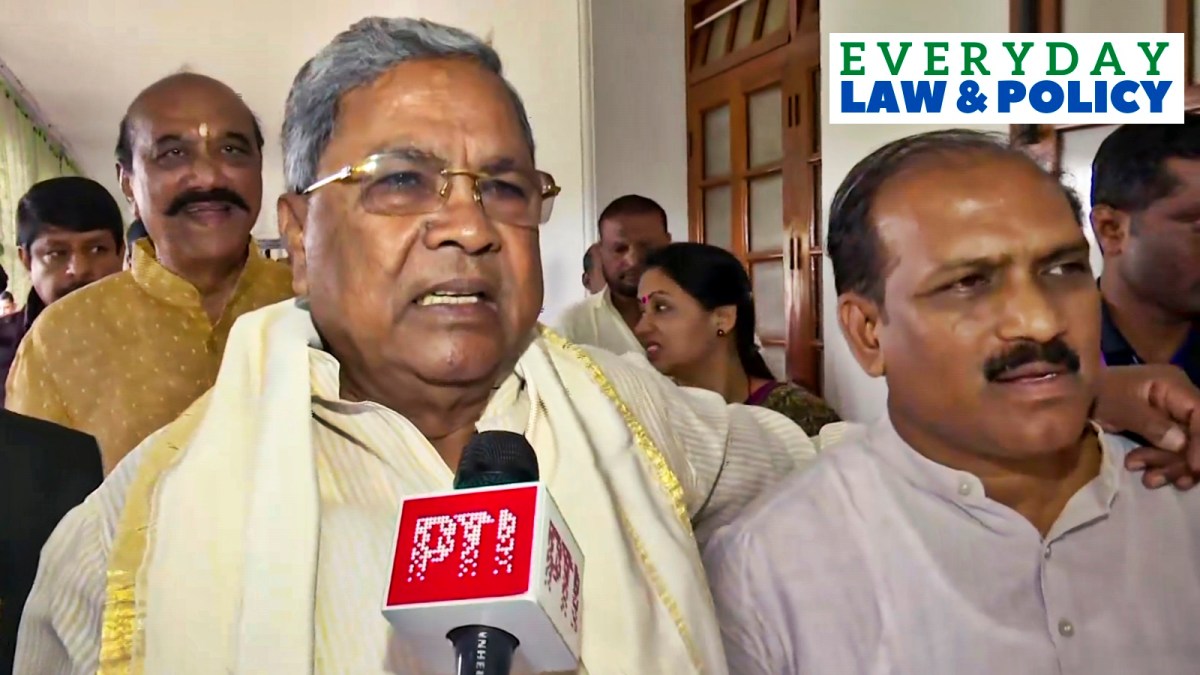Karnataka government withdraws ‘general consent’ to CBI: What it means
The CBI is governed by The Delhi Special Police Establishment (DSPE) Act, 1946, which mandates that the agency must obtain the state government’s consent. What happens when consent is withdrawn?

On Thursday (September 26), the Karnataka government withdrew its general consent to the Central Bureau of Investigation (CBI), which is instrumental in the central agency conducting investigations in the states.
The decision was taken during a Cabinet meeting chaired by Chief Minister Siddaramaiah. State Law Minister H K Patil said, “The CBI and the Centre have not been using their instrumentalities in a judicious manner. So, case-by-case we will verify and give (consent) to the CBI, general consent has been withdrawn.”
Earlier this week, the Karnataka High Court upheld Governor Thaawarchand Gehlot’s decision to sanction prosecution against the CM in an alleged corruption case. Patil said the move was unconnected to the HC’s verdict.
Karnataka is among the eight states that have withdrawn general consent for the CBI, with all others (such as Punjab, West Bengal, Tamil Nadu) ruled by non-BJP governments, except Meghalaya. Traditionally, almost all states have given CBI general consent. However, since 2015, several states have begun to act differently. We explain.
What is general consent to the CBI?
The CBI is governed by The Delhi Special Police Establishment (DSPE) Act, 1946, which mandates that the agency must obtain the consent of the state government concerned before beginning to investigate a crime in a state.
The CBI’s position is in this respect different from that of the National Investigation Agency (NIA), which is governed by The NIA Act, 2008, and has countrywide jurisdiction.
Further, the state government’s consent can be either case-specific or general. Giving general consent would lead to the seamless investigation of corruption cases against central government employees in their states. This is consent by default, in the absence of which the CBI would have to apply to the state government in every case, and before taking even small actions.
Additionally, the CBI will not be able to register any fresh case involving central government officials or a private person in the state without the state government’s consent.
However, some avenues remain available to the CBI to proceed even without general consent, thanks to certain previous court rulings. For instance, in an order passed on October 11, 2018, Delhi High Court ruled that the agency could probe anyone in a state that has withdrawn general consent, if the case was not registered in that state.
The order came on a case of corruption in Chhattisgarh — the court said that since the case was registered in Delhi, the CBI did not require prior consent of the Chhattisgarh government.
Why have some states withdrawn general consent?
Of late, the first state to withdraw consent was Mizoram in 2015 when the Congress government was in power. It was only during the current government under Chief Minister Lalduhoma that the state restored CBI consent in December 2023.
In November 2018, the West Bengal government led by Mamata Banerjee withdrew the general consent that had been accorded to the CBI by the previous Left Front government back in 1989. West Bengal announced its decision within hours of Andhra Pradesh, then ruled by N Chandrababu Naidu’s Telugu Desam Party (TDP), taking a similar decision.
“What Chandrababu Naidu has done is absolutely right. The BJP is using the CBI and other agencies to pursue its own political interests and vendetta,” Banerjee said. After Naidu’s government was replaced by that of Y S Jagan Mohan Reddy in 2019, Andhra Pradesh restored consent.
At the time of withdrawing consent, all states alleged that the central government was using the CBI to unfairly target the opposition.
In November 2021, the Supreme Court expressed concern over a submission by the CBI that since 2018, around 150 requests for sanction to investigate had been pending with the state governments who had withdrawn general consent until then.
This is an edited version of an explainer first published in 2022.